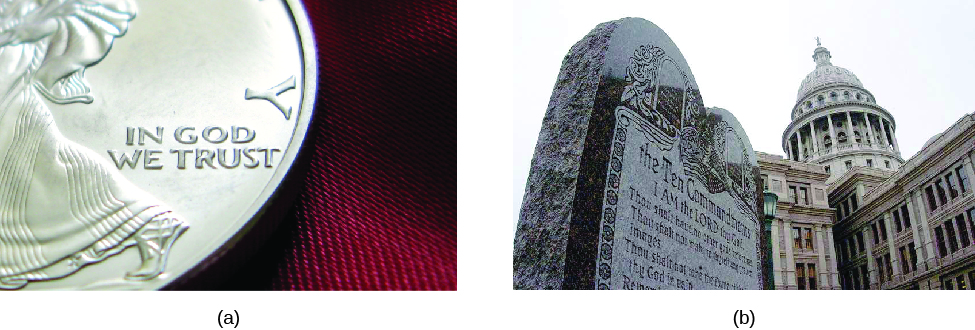| << Chapter < Page | Chapter >> Page > |

The free exercise clause , on the other hand, limits the ability of the government to control or restrict religious practices. This portion of the First Amendment regulates not the government’s promotion of religion, but rather government suppression of religious beliefs and practices. Much of the controversy surrounding the free exercise clause reflects the way laws or rules that apply to everyone might apply to people with particular religious beliefs. For example, can a Jewish police officer whose religious belief, if followed strictly, requires her to observe Shabbat be compelled to work on a Friday night or during the day on Saturday? Or must the government accommodate this religious practice, even if it means the general law or rule in question is not applied equally to everyone?
In the 1930s and 1940s, cases involving Jehovah’s Witnesses demonstrated the difficulty of striking the right balance. In addition to following their church’s teaching that they should not participate in military combat, members refuse to participate in displays of patriotism, including saluting the flag and reciting the Pledge of Allegiance, and they regularly engage in door-to-door evangelism to recruit converts. These activities have led to frequent conflict with local authorities. Jehovah’s Witness children were punished in public schools for failing to salute the flag or recite the Pledge of Allegiance, and members attempting to evangelize were arrested for violating laws against door-to-door solicitation of customers. In early legal challenges brought by Jehovah’s Witnesses, the Supreme Court was reluctant to overturn state and local laws that burdened their religious beliefs.
The rights of
conscientious objector
s —individuals who claim the right to refuse to perform military service on the grounds of freedom of thought, conscience, or religion—have also been controversial, although many conscientious objectors have contributed service as non-combatant medics during wartime. To avoid serving in the Vietnam War, many people claimed to have a conscientious objection to military service on the basis that they believed this particular war was unwise or unjust. However, the Supreme Court ruled in
Gillette v. United States that to claim to be a conscientious objector, a person must be opposed to serving in
any war, not just some wars.

Notification Switch
Would you like to follow the 'American government' conversation and receive update notifications?